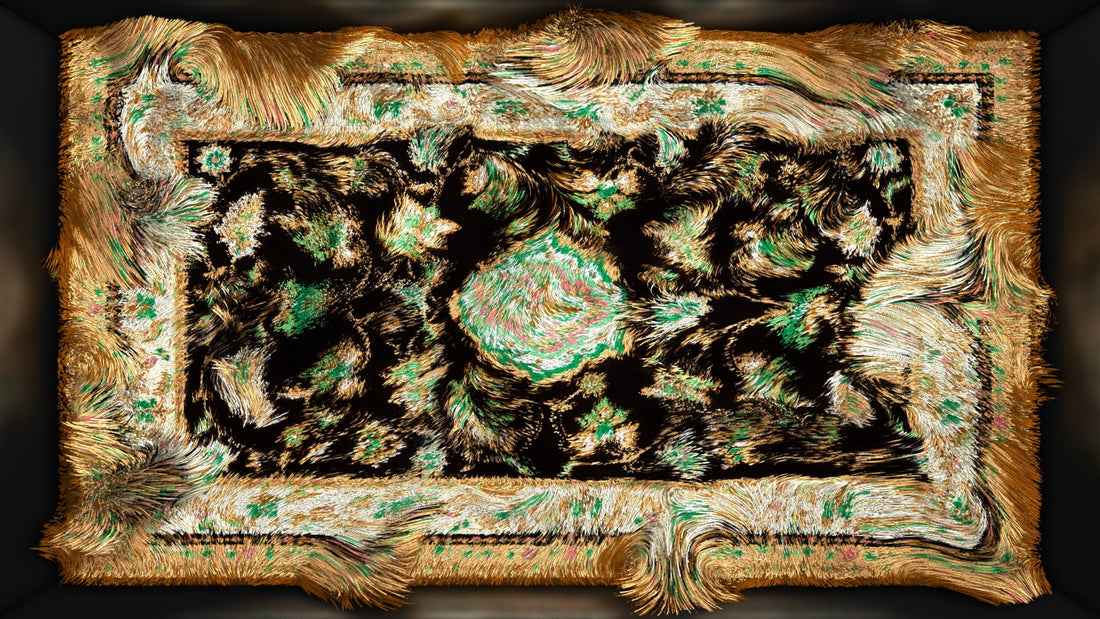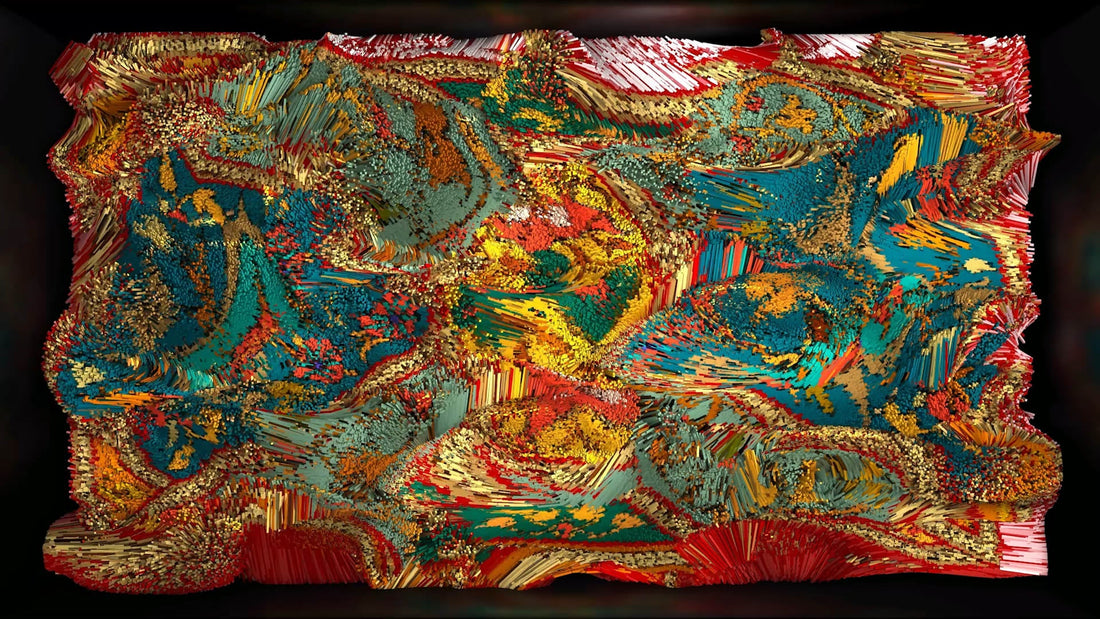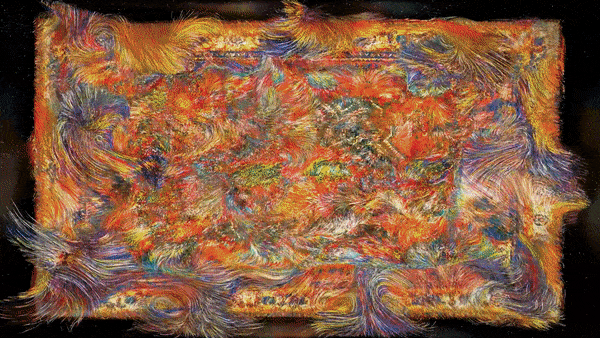GAZELL.iO is pleased to present a solo presentation of trailblazing Azerbaijani digital artist Orkhan Mammadov (Booth X-15). The exhibition, Singularity in Heritage, derives from his ongoing research project and autonomous AI art, first shown at the Venice Contemporary Art Biennial in 2019 and the Moscow International Art Biennale. This exhibition delivers a series of video works resulting from an AI algorithm designed by the artist to understand and find similarities between carpet designs and traditional ornaments. After processing over 150,000 archival images of carpets, rugs, kilims, miniature paintings, and ornamental patterns found in museums and libraries worldwide, a neural network computing system brings together the heritage through a digital lens, enabling the viewer to encounter the visual history of traditional carpets. Mammadov revives a “tangible” cultural heritage and turns it into the first-ever carpets and Middle-Eastern-inspired wall designs in the Metaverse.
Singularity in Heritage, an AI-driven ERC-721 token exhibition, brings the innovation of Eastern visual arts, crafts, traditions, motifs and transmutes it to an experiment in cultural memory. Mammadov aims to broaden the scope of a living tradition by bringing to life these new imagined rugs, coupled with data painting techniques, thread simulation, and colour data. He opens a space for a dialogue between the past and future, dystopia and utopia, to document and preserve the vast cultural history and tradition of the ERC-721 token future. As a result, Mammadov pushes the boundaries of tradition and digital and questions technology’s role as a form of memory and a tool of power.
Historically, carpets, miniature paintings, and decorative oriental patterns play a significant role in forming Azerbaijan’s heritage and aesthetics. Although the Middle East comprises different carpet genres, they share similarities in geometric patterns, floral motifs, and calligraphic shapes. A significant cultural tradition alternates to digital culture and practices, bringing Mammadov’s creative proposition to a global audience and considering how the clash of cultures, between the traditional and the digital, has greatly manifested in Mammadov’s practice and encouraged innovation. By weaving all the data together, Mammadov invites the viewers to understand the significance of and similarities between Middle Eastern carpets and to recreate tangible-world cultures.
In conjunction with the exhibition, Mammadov will be dropping 333 ERC-721 tokens, one of one ERC-721 token artwork collection. The collection consists of three sub-collections of carpets, miniature paintings, and oriental patterns, varying in time scale and price. Mammadov investigates the global trend and creates a new language of orientalism in the utopian world of ERC-721 tokens.
Singularity in Heritage, a unique work, makes its first appearance in Dubai, a global hub at the nexus of the East and West, celebrating Middle Eastern traditions and cultures.
 Vendor:Singularity In Heritage (from Revival of Aesthetics series)Orkhan Mammadov
Vendor:Singularity In Heritage (from Revival of Aesthetics series)Orkhan Mammadov Vendor:Singularity in Heritage - Chapter III #001 - #111 (patterns)Orkhan Mammadov
Vendor:Singularity in Heritage - Chapter III #001 - #111 (patterns)Orkhan Mammadov Vendor:Singularity in Heritage - Chapter II #001 - #111 (miniatures)Orkhan Mammadov
Vendor:Singularity in Heritage - Chapter II #001 - #111 (miniatures)Orkhan Mammadov Vendor:Singularity in Heritage - Chapter I #001 (Carpets)Orkhan Mammadov
Vendor:Singularity in Heritage - Chapter I #001 (Carpets)Orkhan Mammadov





